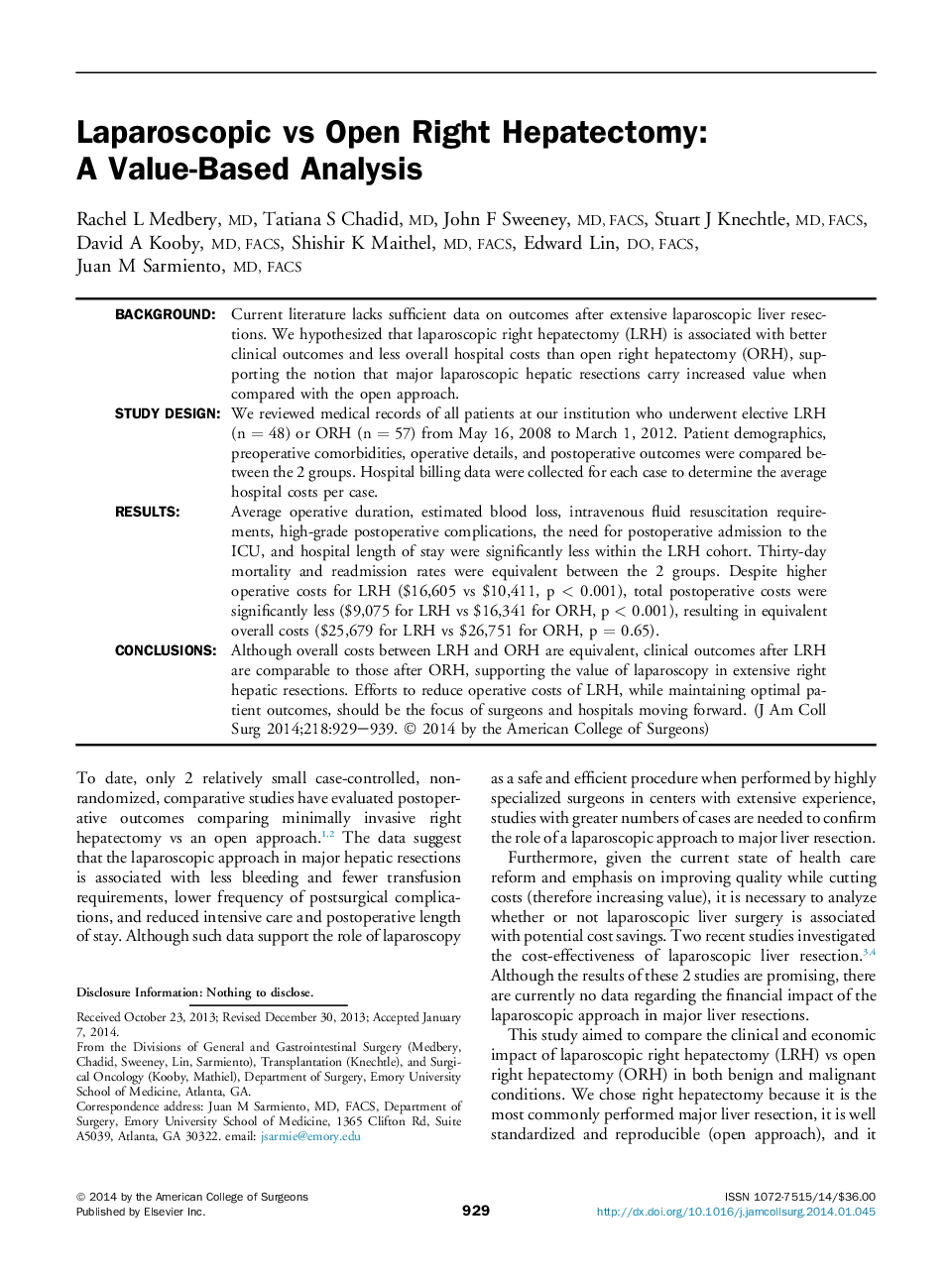| Article ID | Journal | Published Year | Pages | File Type |
|---|---|---|---|---|
| 4291441 | Journal of the American College of Surgeons | 2014 | 11 Pages |
BackgroundCurrent literature lacks sufficient data on outcomes after extensive laparoscopic liver resections. We hypothesized that laparoscopic right hepatectomy (LRH) is associated with better clinical outcomes and less overall hospital costs than open right hepatectomy (ORH), supporting the notion that major laparoscopic hepatic resections carry increased value when compared with the open approach.Study DesignWe reviewed medical records of all patients at our institution who underwent elective LRH (n = 48) or ORH (n = 57) from May 16, 2008 to March 1, 2012. Patient demographics, preoperative comorbidities, operative details, and postoperative outcomes were compared between the 2 groups. Hospital billing data were collected for each case to determine the average hospital costs per case.ResultsAverage operative duration, estimated blood loss, intravenous fluid resuscitation requirements, high-grade postoperative complications, the need for postoperative admission to the ICU, and hospital length of stay were significantly less within the LRH cohort. Thirty-day mortality and readmission rates were equivalent between the 2 groups. Despite higher operative costs for LRH ($16,605 vs $10,411, p < 0.001), total postoperative costs were significantly less ($9,075 for LRH vs $16,341 for ORH, p < 0.001), resulting in equivalent overall costs ($25,679 for LRH vs $26,751 for ORH, p = 0.65).ConclusionsAlthough overall costs between LRH and ORH are equivalent, clinical outcomes after LRH are comparable to those after ORH, supporting the value of laparoscopy in extensive right hepatic resections. Efforts to reduce operative costs of LRH, while maintaining optimal patient outcomes, should be the focus of surgeons and hospitals moving forward.
